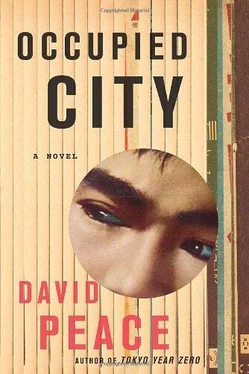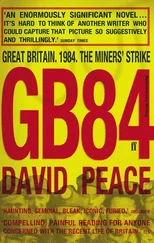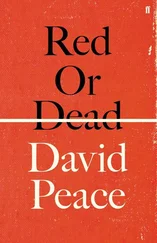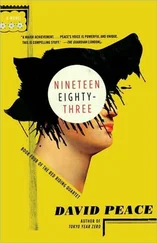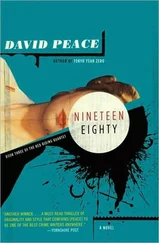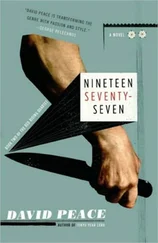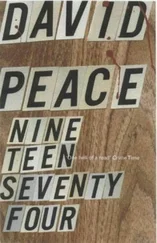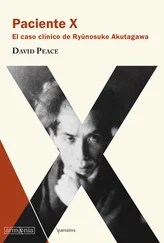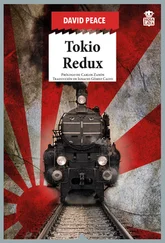‘Thank you for coming,’ says the local chief puppet. ‘I know you are a busy man. Thank you for making the time to see me.’
‘You’re welcome,’ I say. ‘It’s my pleasure. Thank you for inviting me and taking the time yourself.’
‘Well, I wanted to thank you personally for all your efforts in helping us in our investigation …’
‘You’re welcome,’ I say again. ‘It’s not only my pleasure but also my duty as a local citizen …’
‘Thank you,’ says the chief puppet again. ‘Unfortunately, as you are aware, our investigation has yet to reach a conclusion.’
‘It’s a great pity,’ I say. ‘But I know you and your men are working tirelessly to catch this fiend. And I am certain, in the end, that you will be successful in your investigation.’
‘I appreciate your encouragement and support,’ says the chief puppet. ‘Thank you. As you are also aware, the Metro Detectives no longer believe the culprit to be a local man. They believe him to be a man with a military and medical background, who quite possibly served on the mainland during the war …’
‘Is that right?’ I say.
‘That’s their thinking, yes,’ he says. ‘That the culprit possibly even served with the Tokumu Kikan in China …’
‘Really?’ I say.
‘Yes,’ he says. ‘And so the Metro Detectives are planning to question all the former members of the Tokumu Kikan they can find.’
‘That’s very interesting,’ I say.
‘Yes,’ nods the chief again. ‘I thought you’d be interested to know their present thinking, the current course of the investigation, as a concerned local citizen …’
‘Thank you.’
‘You’re very welcome,’ says the local chief puppet, being pulled to his feet. ‘It’s my pleasure. Please keep in touch …’
‘Thank you,’ I say again, bowing and leaving, a fresh fish and a bottle of sake on his desk.
¥
Tap-tap, knock-knock, bang-bang, ‘Who’s there?’
In the upstairs room of a police station, I am a strike-breaker. I wake. I rise. Step by step. I provide men, big men. I provide sticks, big sticks. I crack heads, red heads. I break bones, red bones. In newspaper plants and in film studios, in factories and in universities. For Dai Nippon, for the Emperor –
Fight! Fight! Fight!
For you, for me –
Fight! Fight!
Spring, summer, autumn, winter, morning, afternoon, evening, and night — in all these times — Dust, mud, desert, jungle, field, forest, mountain, valley, river, stream, farm, village, town, city, house, street, shop, factory, hospital, school, government building and railway station — in all these places — Soldier, civilian, man, woman, child and baby, I intimidate them all and I get money and I get more work –
I beat up strikers on their picket lines. I take money and I make money. I burn down the houses of union officials. I take money and I make money. I threaten and I bully, bully, bully –
For the War Machine rolls on, never stopping, never resting, never sleeping, on and on, always rising, always consuming, always devouring. On and on, the War Machine rolls on, across the workers and across their unions, on and on, over their rights and over their jobs, on and on, and from dirty hand into dirtier hands, under the table and into back-pockets, back-pockets into wallets, big fat wallets, money passes, money changes, money grows –
Lesson #4: dog sells stolen dog to another dog.
¥
IN THE OCCUPIED CITY, on the Ginza, in a concrete building, in a brand-new office, tap-tap, knock-knock, bang-bang, ‘Who’s there?’
‘Thank you for seeing me, Boss,’ I say. ‘I know you are a very busy man so, really, thank you very much.’
‘We’re all busy men,’ laughs the Big Boss. ‘Times may be tough, but there are still lots of opportunities for the man who is prepared to be busy. Still money to be made, always money to be made. Lots of money for the busy man …’
‘That’s the truth, all right.’
‘Yes,’ says the Big Boss, ‘and that’s why none of us likes anything to stand in the way of opportunity. Anything like a police investigation, a city-wide manhunt; obstructing our opportunities, impeding our businesses; asking questions none of us want asked, turning over stones that should be left as they are …’
‘So you’ve heard about the change in the course of the investigation, the Tokumu Kikan theory, then?’
‘They’ve already been here.’
‘Is it a problem?’
‘Don’t worry,’ he says. ‘I’ll deal with the Metro Detectives. But I’d like you to deal with the newspapers …’
‘The newspapers?’
‘Yes,’ he smiles. ‘The newspapers. It’s a promotion. A step up for you. A fresh opportunity …’
‘Thank you very much.’
‘Congratulations,’ laughs the Big Boss, pulling my strings and making me rise and making me bow, making me walk backwards.
‘Thank you,’ I say again, rising and bowing, walking backwards out of the brand-new office. ‘Thank you, Boss.’
¥
Tap-tap, knock-knock, bang-bang, ‘Who’s there?’
In a brand-new factory, I am its brand-new owner. I wake. I rise. Floor by floor. I take old parts. I turn old parts into new parts. I sell new parts. I make money. For Dai Nippon, for the Emperor –
Fight! Fight! Fight!
For you, for me –
Fight! Fight!
Spring, summer, autumn, winter, morning, afternoon, evening, and night — in all these times — Dust, mud, desert, jungle, field, forest, mountain, valley, river, stream, farm, village, town, city, house, street, shop, factory, hospital, school, government building and railway station — in all these places — Soldier, civilian, man, woman, child and baby, I take from them all and I sell to the rich and I get money –
I take from the Japanese, his goods and his labour. And I sell to the Americans, his people and his military –
For the War Machine rolls on, never stopping, never resting, never sleeping, always rising, always consuming, always devouring. On and on, the War Machine rolls on, over the Korean War and over the Cold War, on and on, across the Vietnam War and across the Gulf War, on and on, from hand into wallet, wallet into banks, big banks / little banks, money passes, money changes, money grows –
Lesson #5: dog buys two dogs.
¥
IN THE OCCUPIED CITY, in a suburb, down a lane, outside a two-storey house, tap-tap, knock-knock, bang-bang, ‘Who’s there?’
‘Are you Mr XXXX of the XXXX newspaper?’
‘Yes, I am,’ says the puppet in the doorway.
I step back into the shadows. My best puppet steps out of the shadows. My puppet strikes Mr XXXX of the XXXX newspaper.
Mr XXXX of the XXXX newspaper is stunned. He touches his plaster forehead. He stares at his wooden hand. At the blood.
I step back out of the shadows. I pull a string to lift up the chin of Mr XXXX of the XXXX newspaper, to look into his eyes –
His blinking and his bloody eyes –
I say, ‘No more stories.’
¥
Tap-tap, knock-knock, bang-bang, ‘Who’s there?’
In a firm, I am its managing director. I wake. I rise. Floor by floor. I buy. I sell. I make companies. I buy companies. I sell companies. I make money. For Dai Nippon, for the Emperor –
Fight! Fight! Fight!
For you, for me –
Fight! Fight!
Spring, summer, autumn, winter, morning, afternoon, evening, and night — in all these times — Dust, mud, desert, jungle, field, forest, mountain, valley, river, stream, farm, village, town, city, house, street, shop, factory, hospital, school, government building and railway station — in all these places — Soldier, civilian, man, woman, child and baby, I recruit from them all and I pick their brains and I use them –
Читать дальше
